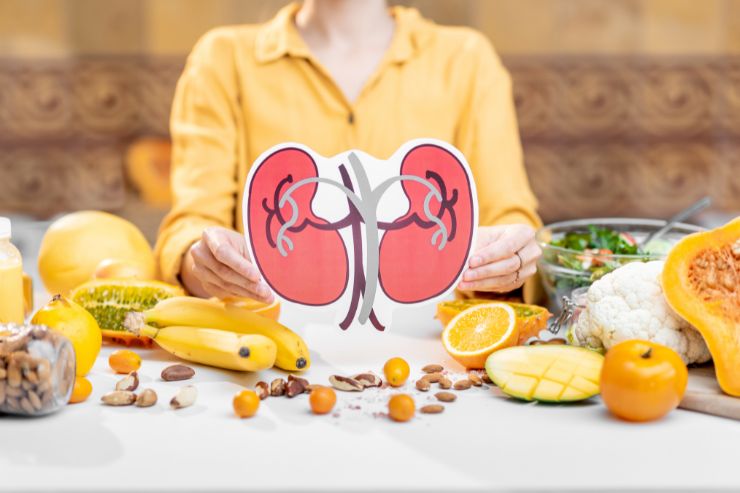
Diet plays a crucial role in managing kidney disease and protecting overall kidney function. When your kidneys are damaged, they have difficulty filtering waste and excess fluid from your blood. A proper diet can reduce the strain on your kidneys, prevent further damage, and manage the symptoms of kidney disease. Following a kidney-friendly diet can help slow down the progression of chronic kidney disease (CKD) and reduce the risk of complications.
Essential Nutrients to Monitor in a Kidney-Friendly Diet
Certain nutrients need to be carefully monitored to maintain kidney health. Here’s a breakdown of what to focus on:
Sodium
Excess sodium can cause high blood pressure and fluid retention, putting extra pressure on the kidneys. A low-sodium diet helps control blood pressure and prevents swelling.
Potassium
Potassium is vital for heart and muscle function, but too much can cause dangerous heart problems in people with kidney disease.
Phosphorus
High phosphorus levels can weaken bones and harm blood vessels. Limiting phosphorus intake can protect bones and heart health.
Protein
While protein is essential for repairing tissues and supporting body functions, excessive intake can burden the kidneys. It’s important to find the right balance.
Fluids
Managing fluid intake is crucial for people with kidney disease, especially if you are undergoing dialysis. Too much fluid can lead to swelling, high blood pressure, and shortness of breath.